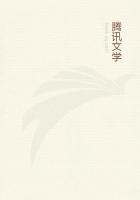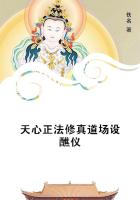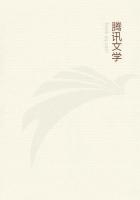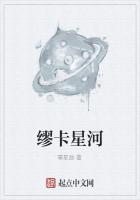Thus an habitual practice in the lower exercises of the art will prevent many from attaining the greater.But such of us who move in these humbler walks of the profession are not ignorant that, as the natural dignity of the subject is less, the more all the little ornamental helps are necessary to its embellishment.It would be ridiculous for a painter ofdomestic scenes, of portraits, landscapes, animals, or of still life, to say that he despised those qualities which have made the subordinate schools so famous.The art of colouring, and the skilful management of light and shadow, are essential requisites in his confined labours.If we descend still lower, what is the painter of fruit and flowers without the utmost art in colouring, and what the painters call handling; that is, a lightness of pencil that implies great practice, and gives the appearance of being done with ease? Some here, I believe, must remember a flower-painter whose boast it was that he scorned to paint for the million; no, he professed to paint in the true Italian taste; and despising the crowd, called strenuously upon the few to admire him.His idea of the Italian taste was to paint as black and dirty as he could, and to leave all clearness and brilliancy of colouring to those who were fonder of money than of immortality.The consequence was such as might be expected.For these pretty excellences are here essential beauties; and without this merit the artist's work will be more short-lived than the objects of his imitation.
From what has been advanced, we must now be convinced that there are two distinct styles in history painting: the grand, and the splendid or ornamental.
The great style stands alone, and does not require, perhaps does not so well admit, any addition from inferior beauties.The ornamental style also possesses its own peculiar merit.However, though the union of the two may make a sort of composite style, yet that style is likely to be more imperfect than either of those which go to its composition.Both kinds have merit, and may be excellent though in different ranks, if uniformity be preserved, and the general and particular ideas of nature be not mixed.Even the meanest of them is difficult enough to attain; and the first place being already occupied by the great artists in either department, some of those who followed thought there was less room for them, and feeling the impulse of ambition and the desire of novelty, and being at the same time perhaps willing to take the shortest way, they endeavoured to make for themselves a place between both.This they have effected by forming a union of the different orders.But as the grave and majestic style would suffer by a union with the florid and gay, so also has the Venetianornament in some respect been injured by attempting an alliance with simplicity.
It may be asserted that the great style is always more or less contaminated by any meaner mixture.But it happens in a few instances that the lower may be improved by borrowing from the grand.Thus, if a portrait painter is desirous to raise and improve his subject, he has no other means than by approaching it to a general idea.He leaves out all the minute breaks and peculiarities in the face, and changes the dress from a temporary fashion to one more permanent, which has annexed to it no ideas of meanness from its being familiar to us.But if an exact resemblance of an individual be considered as the sole object to be aimed at, the portrait painter will be apt to lose more than he gains by the acquired dignity taken from general nature.It is very difficult to ennoble the character of a countenance but at the expense of the likeness, which is what is most generally required by such as sit to the painter.
Of those who have practised the composite style, and have succeeded in this perilous attempt, perhaps the foremost is Correggio.His style is founded upon modern grace and elegance, to which is super, added something of the simplicity of the grand style.A breadth of light and colour, the general ideas of the drapery, an uninterrupted flow of outline, all conspire to this effect.Next him (perhaps equal to him) Parmegiano has dignified the genteelness of modern effeminacy by uniting it with the simplicity of the ancients and the grandeur and severity of Michael Angelo.It must be confessed, however, that these two extraordinary men, by endeavouring to give the utmost degree of grace, have sometimes, perhaps, exceeded its boundaries, and have fallen into the most hateful of all hateful qualities, affectation.Indeed, it is the peculiar characteristic of men of genius to be afraid of coldness and insipidity, from which they think they never can be too far removed.It particularly happens to these great masters of grace and elegance.They often boldly drive on to the very verge of ridicule; the spectator is alarmed, but at the same time admires their vigour and intrepidity.
Strange graces still, and stranger flights they had,...Yet ne'er so sure our passion to create Ae when they touch'd the brink of all we hate.
The errors of genius, however, are pardonable, and none even of the more exalted painters are wholly free from them; but they have taught us, by the rectitude of their general practice, to correct their own affected or accidental deviation.The very first have not been always upon their guard, and perhaps there is not a fault but what may take shelter under the most venerable authorities; yet that style only is perfect in which the noblest principles are uniformly pursued; and those masters only are entitled to the first rank in, our estimation who have enlarged the boundaries of their art, and have raised it to its highest dignity, by exhibiting the general ideas of nature.
On the whole, it seems to me that there is but one presiding principle which regulates and gives stability to every art.The works, whether of poets, painters, moralists, or historians, which are built upon general nature, live for ever; while those which depend for their existence on particular customs and habits, a partial view of nature, or the fluctuation of fashion, can only be coeval with that which first raised them from obscurity.Present time and future maybe considered as rivals, and he who solicits the one must expect to be discountenanced by the other.















